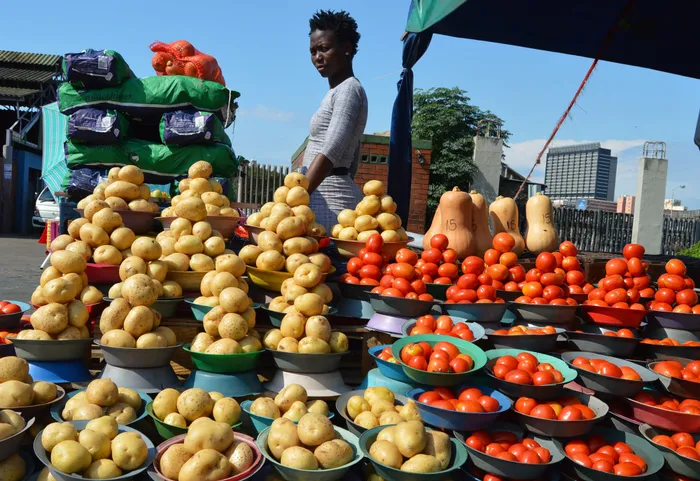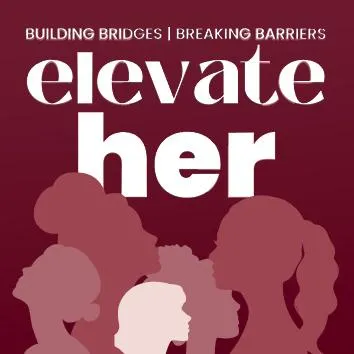Invisible entrepreneurs: Recognising women traders in South Africa’s hustle economy

A street vendor, Anele Buthelezi, arranging her vegetable stall in the morning at the Durban market in this file photo.
Image: Tumi Pakkies Independent Newspapers
In South Africa, the word hustle often conjures up the image young men selling iPhones and sneakers on Instagram, the teenager washing cars at the corner, or the boys lingering outside a spaza shop asking for R2. Their creativity and energy embody one face of hustling: quick, visible, entrepreneurial activity that thrives on immediacy and modern platforms. This side of hustle is celebrated as a bold response to unemployment and limited opportunities, showcasing how youth reimagine livelihoods in a precarious economy.
But hustle has another quieter, less visible, yet far more enduring face. This is the hustle of women, particularly those over thirty-five, who sustain South Africa’s informal economy through daily enterprise. They are the traders at taxi ranks, the women running home-based food businesses, the resellers of shoes and clothing, and the stokvel organisers who manage local financial ecosystems.
Women form the majority of South Africa’s informal traders. Statistics South Africa estimates that more than 60% of informal traders are women, most of them over thirty-five. For generations, South African women have embodied this form of hustle. From selling Avon and Tupperware door-to-door, to running stokvels and informal savings schemes, to reselling shoes, clothes, or household goods, they have consistently innovated within limited means to create economic space for themselves and their families. This is not incidental work, it is strategic, layered, and grounded in necessity. The barriers they face are significant: limited access to finance, low formal education levels, exclusion from mainstream employment opportunities, and the weight of caregiving responsibilities. Yet, rather than being reduced by these constraints, they continually reimagine ways to sustain livelihoods.
The informal food economy highlights this contribution vividly. In townships and rural settlements where supermarkets are scarce, women traders ensure that affordable fruit, vegetables, cooked meals, and household goods are always within reach. Their work is essential not only for livelihoods but for urban food security. Yet, despite this, their enterprises remain marginalised in policy frameworks.
Government initiatives such as the National Informal Business Upliftment Strategy (NIBUS) and municipal trading by-laws attempt to include informal traders, but implementation often disadvantages women. Licensing is inconsistent, enforcement can be punitive, and trading spaces are rarely equipped with basics such as water, sanitation, or electricity. During the Covid-19 lockdown, the process for obtaining trading permits highlighted the exclusionary nature of interventions for the informal sector. Informal food traders were initially prohibited from operating, and when permits became available, the application process was overly complicated. Additionally, financial relief for informal food traders was difficult to access, requiring online applications or formal banking documentation. This particularly disadvantaged women running cash-based businesses, highlighting that the policy intervention was poorly designed and out of touch with the realities of the informal economy.
Yet, rather than folding, they innovated. During lockdown, some created informal delivery networks within their neighborhoods using instant messaging platforms such as WhatsApp. Others bulk-bought stock collectively or extended credit to loyal customers who had lost their jobs. In rural areas, women turned to local farmers, creating supply chains that bypassed disrupted formal systems. These acts demonstrated not only economic ingenuity but also social leadership, ensuring that households could still access food in a moment of national crisis.

Logo
Image: Supplied
Their impact goes beyond commerce. Female informal traders absorb young relatives into their stalls, teaching practical business skills. They provide food on credit, easing pressure on neighbours in times of need. They circulate money within communities, reinforcing social cohesion and mutual support where the government falls short.
What remains missing is recognition. Policy discourse on entrepreneurship still privileges formalised, often male entrepreneurs. This narrow view undervalues the informal systems that women over thirty-five have long sustained. For South Africa to build an inclusive economy, it must recalibrate its approach: simplify licensing, invest in market infrastructure, and provide micro-finance tailored for informal traders. Crucially, women traders themselves must be represented in policy and municipal planning processes.
The story of hustle, then, is not complete if it only celebrates youth. It must also honour the woman who wakes at dawn to cook amagwinya, who knows her customers by name and need. Her hustle has endured for decades, outlasting programmes, policies, and political promises. It is time to see her as she truly is not a marginal actor, but the heartbeat of South Africa’s economy.
Boitshoko Shoke and Londani Mpharalala work in the Research and Impact Office at 22 On Sloane.
*** The views expressed here do not necessarily represent those of Independent Media or IOL.
BUSINESS REPORT